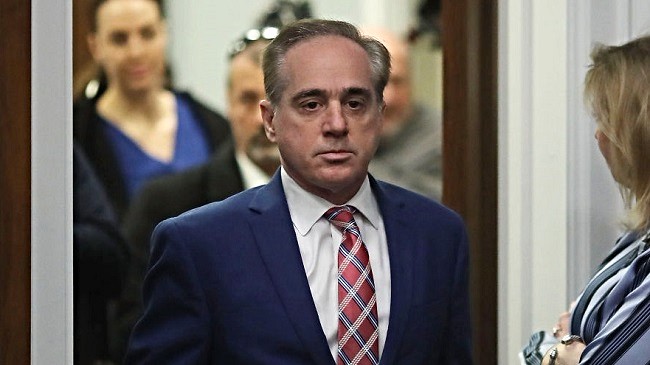
The morning after President Trump seemingly fired and replaced Veterans Affairs Secretary David Shulkin over Twitter, the only cabinet appointee with a unanimous Senate confirmation in 2017 wrote a blistering response to the administration’s efforts to privatize the VA healthcare system in the New York Times. Shulkin, who was initially appointed to the VA’s under secretary post by President Obama, was especially incensed by the “toxic” environment he believes Washington D.C. has turned into since the arrival of “some political appointees choosing to promote their agendas instead of what’s best for veterans.”
“I believe differences in philosophy deserve robust debate,” Shulkin writes of the differing ideologies for running the VA, “and solutions should be determined based on the merits of the arguments”:
The advocates within the administration for privatizing V.A. health services, however, reject this approach. They saw me as an obstacle to privatization who had to be removed. That is because I am convinced that privatization is a political issue aimed at rewarding select people and companies with profits, even if it undermines care for veterans.
Throughout the first year of Trump’s presidency, but especially “in recent months,” Shulkin argues “the environment in Washington has turned so toxic, chaotic, disrespectful and subversive” that he and his colleagues have been unable to accomplish anything of substance or value to the veterans the VA is supposed to serve. “Unfortunately,” he continues, “the department has become entangled in a brutal power struggle, with some political appointees choosing to promote their agendas instead of what’s best for veterans. These individuals… seek to privatize veteran health care as an alternative to government-run V.A. care.”
As of this writing, Trump has yet to tweet about Shulkin’s Times op-ed (since it probably hasn’t popped up on Fox & Friends yet). Considering the fact that it took him a day to respond to reports of his wanting to take down Amazon, however, it’s only a matter of time.
(Via New York Times)
